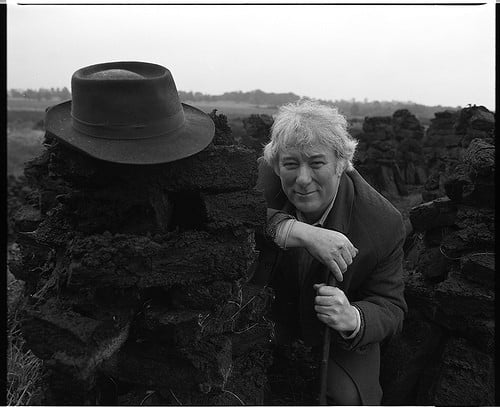Sathima Bea Benjamin 1936 to three-weeks-ago Friday
Ms. Benjamin was all about soul: she sought to soothe it and agitate it. She was a sublime jazz singer and one of the leading South African ex-pat advocates for the African National Congress’s campaign against Apartheid. Her life revolved around the Sharpeville massacre which drove her to leave her homeland for Paris and later New York. Her musical career took off in both places which gave her a (gorgeous) bully pulpit to share the plight of South Africans with the jazz-listening world. She leaves behind (at least a hand in) Apartheid’s end and her “languorous phrases floating above the beat, with carefully turned glides and curves and delicate shifts of timbre — a graceful, somber, pared-down approach:”
Lofti Mansouri 1929 to last Friday
Death-row inmates and world class opera are rarely mentioned in the same breath. That is, unless you speak of Mr. Mansouri, the Iranian born two-decade director of the San Francisco Opera. Endeavouring to make opera relevant to new audiences, Lofti commissioned much contemporary work, including Jake Heggie’s maiden opera, ‘Dead Man Walking.’ Heggie’s work was an adaptation of the memoir of Sr. Helen Prejean C.S.J.’s spiritual walk with the murderer Patrick Sonnier as he journeys toward the electric chair, a story that turns from terrifying to tear-filled (a story that rends hearts and cries for operatic adaptation). Perhaps Mr. Mansouri’s love of the opera came from his own operatic self-perception remembering “with candor about his upbringing, torn between a sternly authoritarian businessman father and a love-starved mother who found refuge in the world of cinema.” (Really, for which of us is some version of this not true?) In any case, Lofi leaves behind DMW’s worldwide success that graces us with this overwhelming and enthralling clip:
Seamus Heaney 1939 to last Friday
Perhaps it’s Mr. Heaney’s left-behind words on the inevitable menace of death that would eulogize him best:
‘Death of a Naturalist’
All year the flax-dam festered in the heart
Of the townland; green and heavy headed
Flax had rotted there, weighted down by huge sods.
Daily it sweltered in the punishing sun.
Bubbles gargled delicately, bluebottles
Wove a strong gauze of sound around the smell.
There were dragon-flies, spotted butterflies,
But best of all was the warm thick slobber
Of frogspawn that grew like clotted water
In the shade of the banks. Here, every spring
I would fill jampotfuls of the jellied
Specks to range on window-sills at home,
On shelves at school, and wait and watch until
The fattening dots burst into nimble-
Swimming tadpoles. Miss Walls would tell us how
The daddy frog was called a bullfrog
And how he croaked and how the mammy frog
Laid hundreds of little eggs and this was
Frogspawn. You could tell the weather by frogs too
For they were yellow in the sun and brown
In rain.
Then one hot day when fields were rank
With cowdung in the grass the angry frogs
Invaded the flax-dam; I ducked through hedges
To a coarse croaking that I had not heard
Before. The air was thick with a bass chorus.
Right down the dam gross-bellied frogs were cocked
On sods; their loose necks pulsed like sails. Some hopped:
The slap and plop were obscene threats. Some sat
Poised like mud grenades, their blunt heads farting.
I sickened, turned, and ran. The great slime kings
Were gathered there for vengeance and I knew
That if I dipped my hand the spawn would clutch it.
******
Seamus Heaney photo courtesy Burns Library, Boston College


